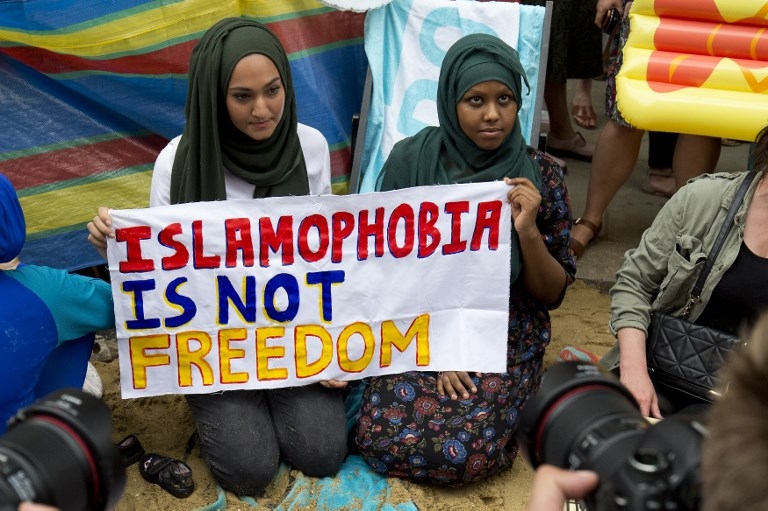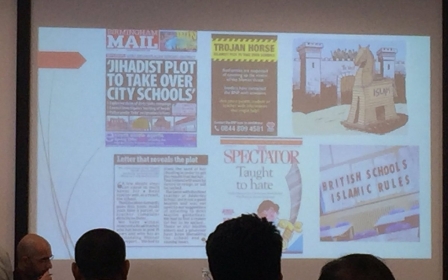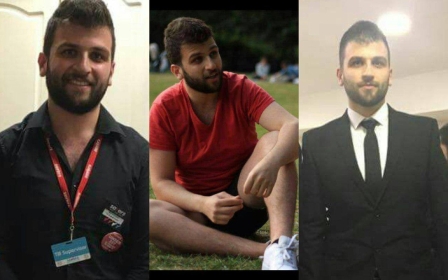Most British people support racial profiling of Arabs and Muslims: Poll

A majority of British people support racial profiling against Arabs and Muslims for security reasons, according to a new poll, which also reserves criticism for British foreign policy in the Arab world.
The YouGov poll which looks at UK attitudes to the Arab world, reveals differences between Conservative and Labour voters, and Remainers and Brexiters.
In total, 55 percent of respondents wanted racial profiling of Arabs and Muslims. When broken down across the political spectrum, 72 percent of Conservatives agree with profiling, while 42 percent of Labour party voters support it, the poll says.
But just 24 percent of people are against profiling, something that will concern campaigners who have long-argued that British counter-terrorism policies such as Prevent already overwhelmingly target Muslims.
Asked if Islamophobia is becoming more of a problem in Britain today, 72 percent agree, while the number that think anti-refugee statements by politicians, commentators and public figures increases the risk of hate crimes stands at 70 percent - though among Brexiters this figure drops to 51 percent.
It is alarming that 81 percent of the British public appear to know little or nothing about the Arab world
Chris Doyle, CAABU Director
This contrasts with the 28 percent who agree that migrants and refugees from the Arab world are beneficial to Europe and Britain, with Labour party supporters and Remainers more likely to see benefits in migrants and refugees.
The gulf between Remainers and Brexiters is at its starkest on whether the UK should take more refugees from Iraq and Syria, with 60 percent of Remainers in support of taking more, and 91 percent of Brexit supporters wanting fewer.
The three perceptions associated the most with Arab societies are strict gender roles, Islam and wealth, while 72 percent of people think that Iran is an Arab country.
The poll was commissioned by Arab News and the Council for the Advancement of Arab-British Understanding (CAABU), whose director Chris Doyle told MEE that “ignorance” about the Arab world is partly to blame for these views, pointing out that the vast majority of people said they knew little or nothing about the region.
“It is alarming that 81 percent of the British public appear to know little or nothing about the Arab world given its of such strategic importance to Britain politically and culturally.”
Doyle said attitudes may have also hardened in reaction to a recent spate of militant attacks across the UK, but that “it’s got to be made clear that the vast majority of Muslims and Arabs are bitterly opposed to IS and even more importantly are their biggest victims”.
“Racial profiling has been a pretty ineffective tool and is possibly counterproductive.”
Scepticism over foreign policy
Yet the survey - which is weighted and was conducted among 1,200 people from a YouGov panel in August - reveals scepticism over Britain’s role in the Arab world with just 13 percent believing that British foreign policy has helped to stabilise the region, and only 15 percent believing that Britain has been effective at upholding human rights and global security there.
A slim majority of Britons (53 percent) back the current intervention against Islamic State in Iraq and Syria, but some 83 percent think that it was wrong to go to war with Iraq in 2003.
Over half of respondents think that the UK should recognise Palestine as a state, but the country is divided on whether or not Britain should see the Balfour Declaration, in which Britain promised a homeland to Jews, with a sense of pride (32 percent) or regret (27 percent).
Doyle hopes that the results will act as a “wake-up call” and show politicians and opinion formers that “more work needs to be done”.
“We have to make the case to the British government and other institutions and governments in the Arab world to bridge these gaps.”
“The majority of people here do not buy into this extremism. Ignorance will feed fanaticism and the likes of ISIS and al-Qaeda on one side and the far-right on the other.”
New MEE newsletter: Jerusalem Dispatch
Sign up to get the latest insights and analysis on Israel-Palestine, alongside Turkey Unpacked and other MEE newsletters
Middle East Eye delivers independent and unrivalled coverage and analysis of the Middle East, North Africa and beyond. To learn more about republishing this content and the associated fees, please fill out this form. More about MEE can be found here.




